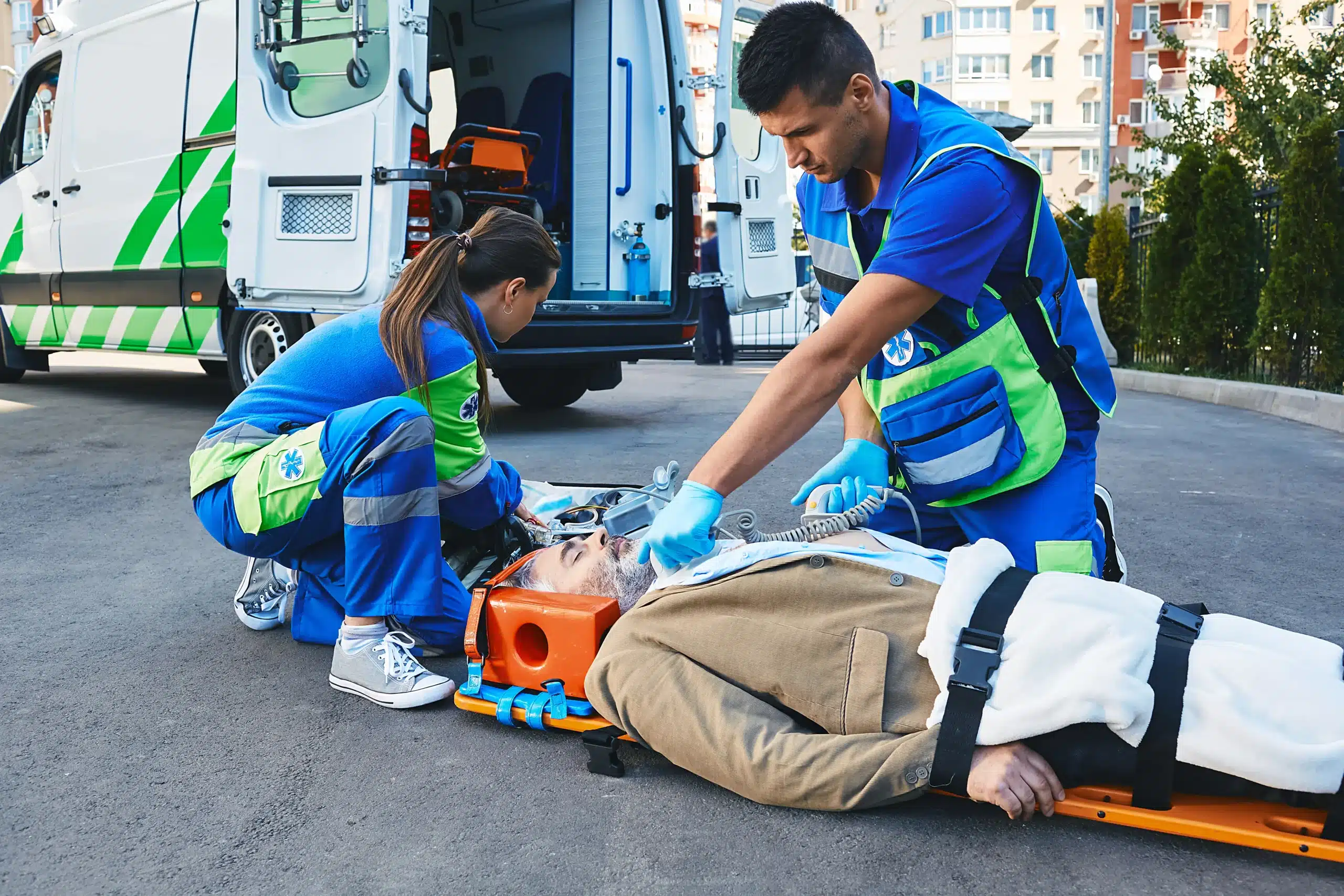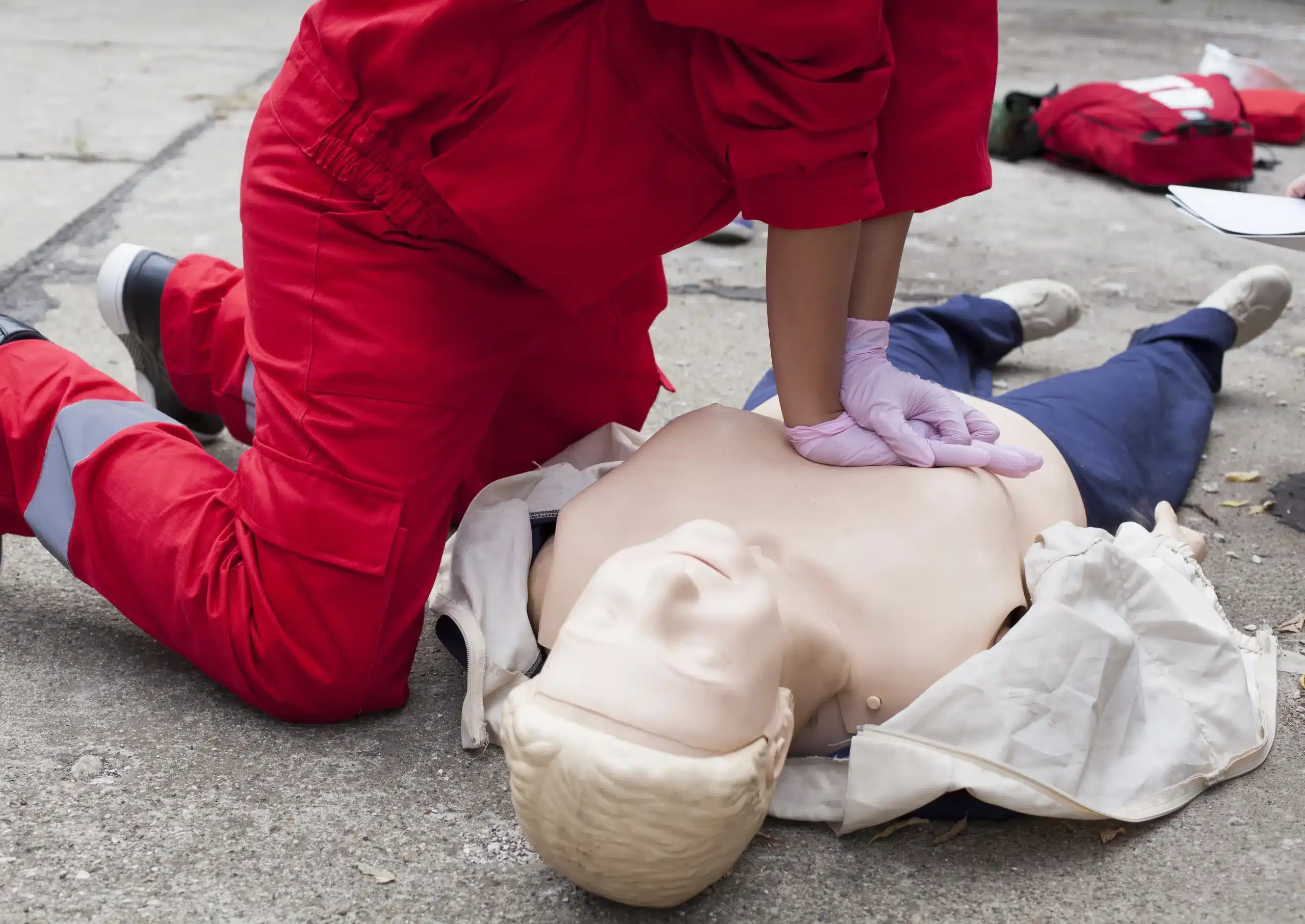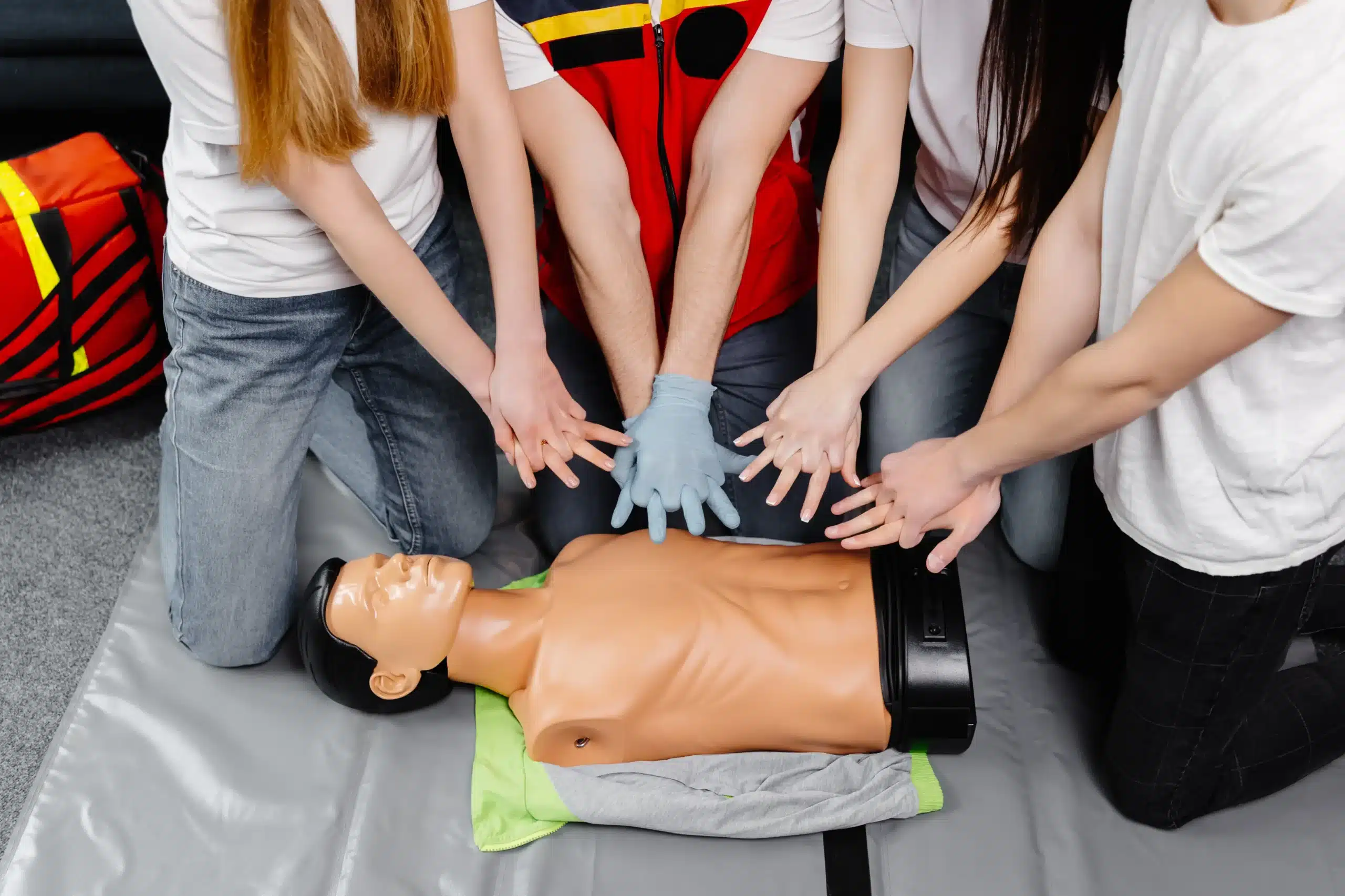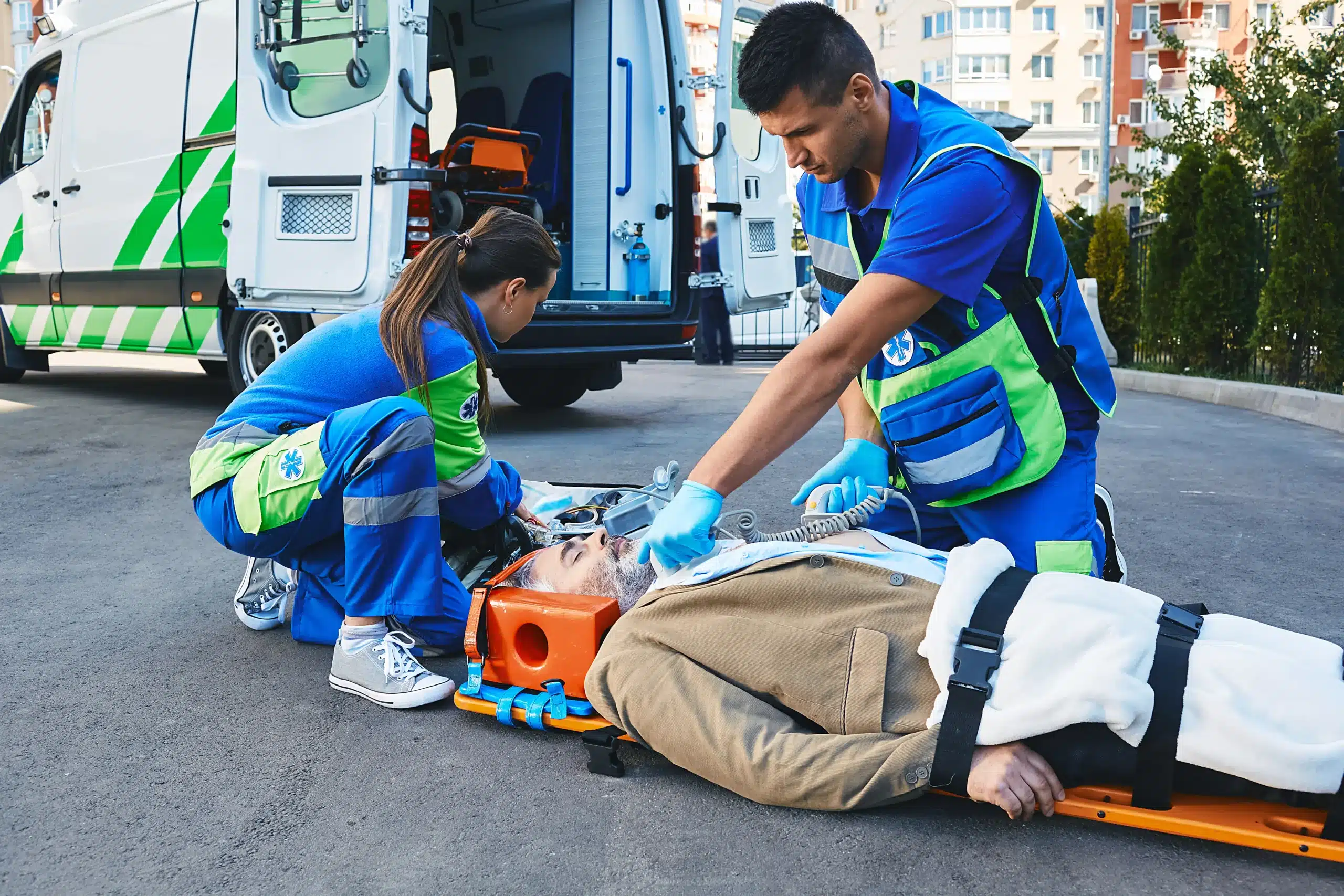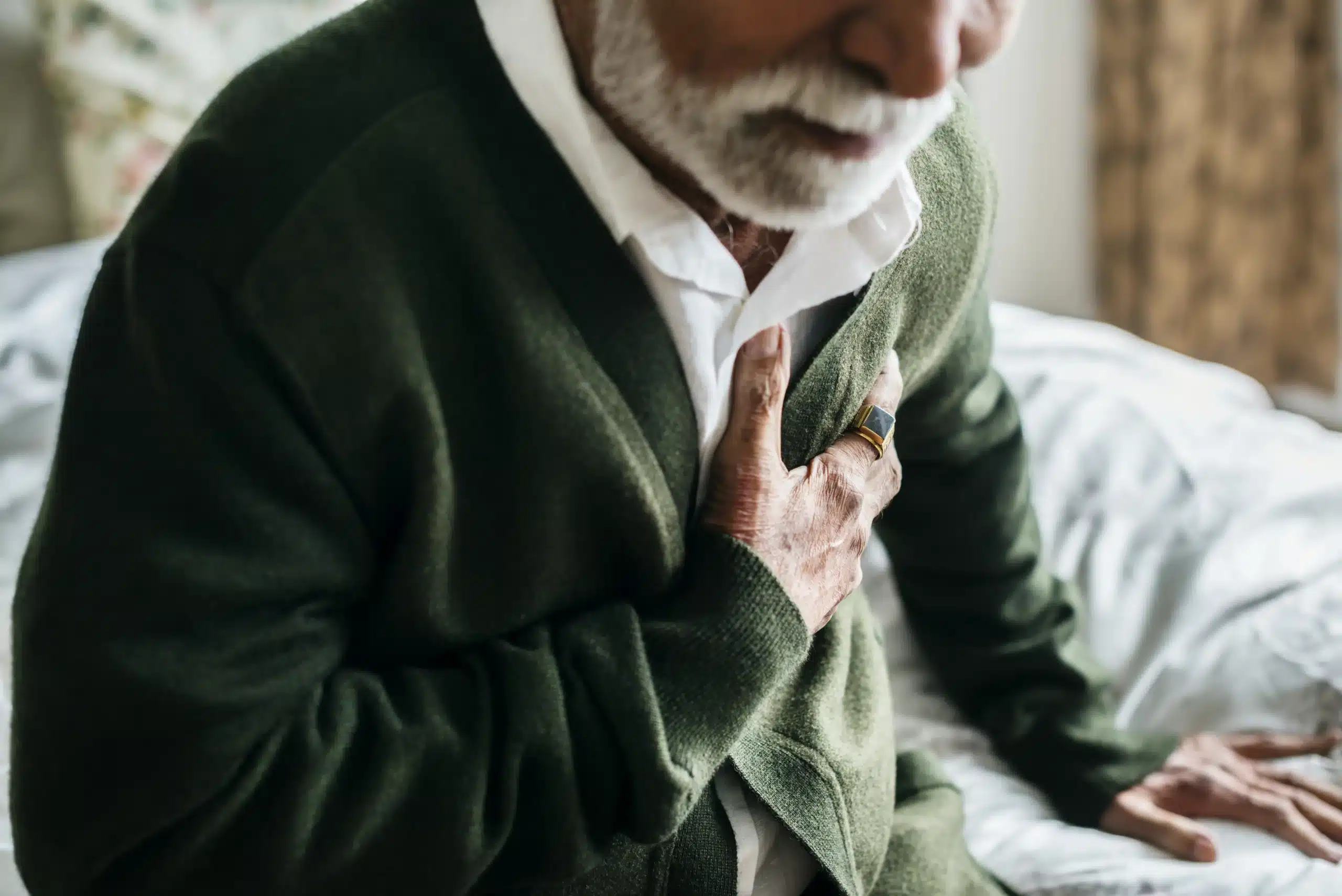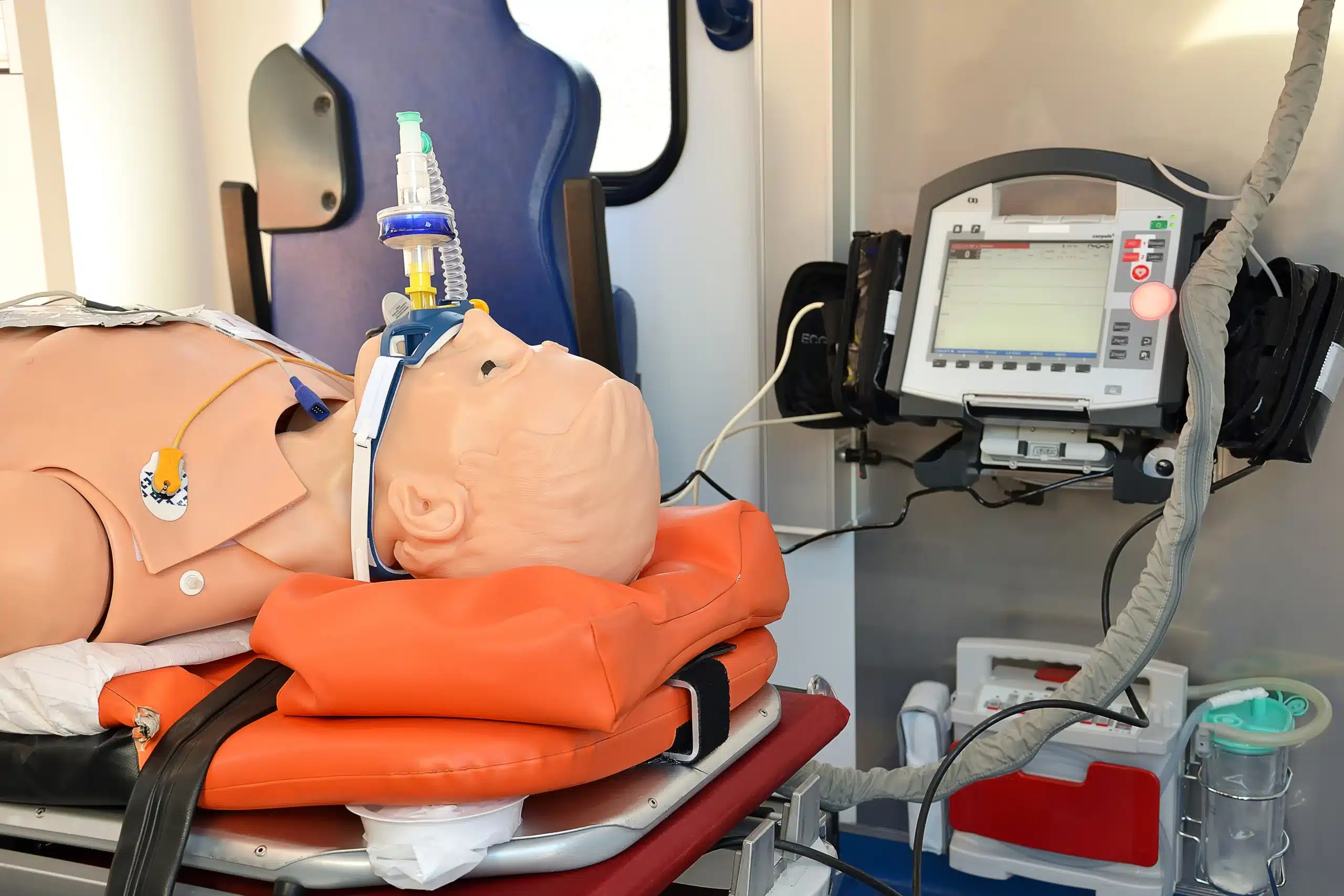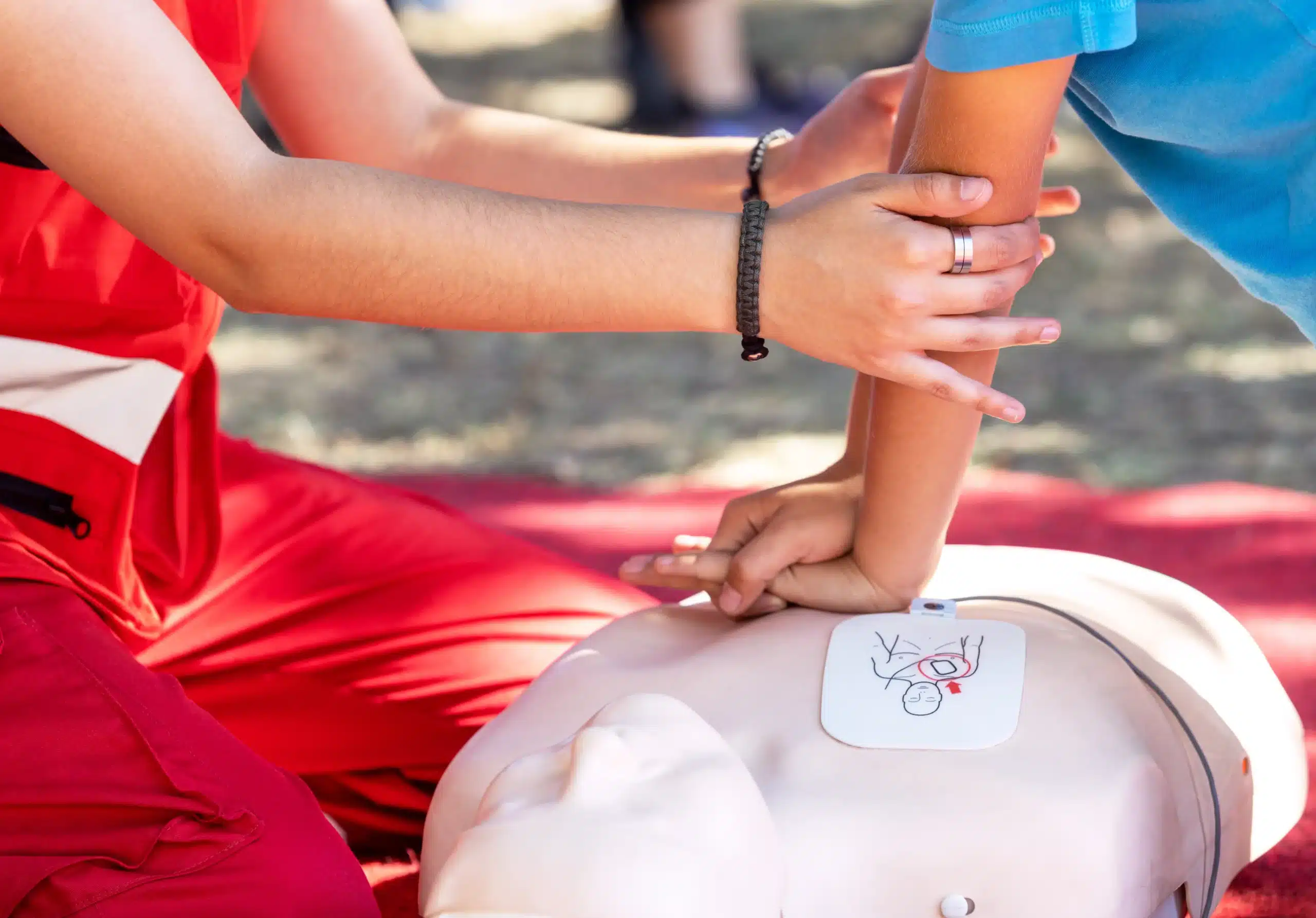Medical emergencies can happen anytime, anywhere. Would you know what to do if faced with a life-threatening situation? Basic Life Support (BLS) training empowers individuals with the skills and confidence to respond effectively in such critical moments. This guide is your resource for understanding BLS certification, especially if you’re searching for basic life support in Tracy, California. We’ll cover the essential skills taught in BLS courses, the steps to get certified, and where to find reputable training providers in Tracy. We’ll also clarify the difference between BLS and CPR and discuss who should consider getting BLS certified. Let’s explore the world of BLS and how it can equip you to make a difference.
Key Takeaways
- BLS goes beyond basic CPR: It’s crucial for healthcare professionals and first responders, providing advanced skills to manage life-threatening emergencies. If you’re in healthcare, BLS certification is often a must-have.
- Finding a BLS course near you is simple: Providers like Tracy CPR Classes offer flexible options, including in-person and blended learning, to fit your busy schedule. Compare local providers and choose the best fit for your needs.
- Keep your BLS skills current: Recertification is key to maintaining your proficiency and staying up-to-date with the latest guidelines. Plan to renew your certification every two years through a reputable provider.
What is BLS?
Basic Life Support (BLS) is a critical certification designed for healthcare professionals and first responders. Think doctors, nurses, EMTs, and firefighters—anyone on the front lines of medical emergencies. BLS provides a comprehensive approach to patient care in those crucial first moments, equipping individuals with the skills to address life-threatening situations like cardiac arrest, respiratory distress, and airway obstructions. It goes beyond basic CPR techniques. If you’re pursuing a career in healthcare, BLS certification is often essential.
Key BLS Skills
BLS focuses on the fundamentals of life support: maintaining an open airway, supporting breathing, and ensuring proper circulation. These core elements translate into specific skills, including initial patient assessment, airway management techniques, rescue breathing (like mouth-to-mouth resuscitation), and chest compressions. Mastering these skills is essential for responding effectively to emergencies and potentially saving lives. The American Heart Association offers detailed guidelines and resources on these essential BLS skills.
Why BLS Matters in Emergencies
In a medical crisis, every second counts. The first few minutes of an emergency, like a sudden cardiac arrest, are absolutely critical. The overall survival rate for out-of-hospital cardiac arrest is around 10%, but immediate bystander CPR can dramatically improve the odds. Research shows it can double or even triple a person’s chances of survival. This is where BLS training comes in. It empowers individuals to take immediate, effective action while waiting for professional medical help to arrive.
Find BLS Certification in Tracy
If you’re searching for “BLS certification near me,” several excellent options are available in Tracy, California.
Tracy CPR Classes
Tracy CPR Classes, powered by Safety Training Seminars, offers a comprehensive range of American Heart Association (AHA) certified courses, including BLS, ACLS, PALS, CPR, and First Aid. Located at 902 N Central Ave, #219, Tracy, CA 95376, they offer convenient daily classes with extended hours from 8 am to 10 pm. This flexible schedule makes it easier to fit BLS certification into your busy life. With classes available in over 60 Northern California cities, they provide accessible training throughout the region. Check their Northern CA CPR directory for a class near you.
Safety Training Seminars
Safety Training Seminars emphasizes hands-on training in life-saving techniques. Their BLS certification courses combine online learning with in-person practice, allowing you to learn at your own pace and then build your skills through hands-on application. This blended approach helps develop confidence and the muscle memory crucial for effective BLS in emergencies. Their AHA certifications are widely recognized and often preferred by employers.
American Heart Care CPR
American Heart Care CPR offers BLS/CPR and first aid certification classes in Tracy. They focus on practical, hands-on learning led by experienced instructors with real-world expertise. With classes available in both English and Spanish, American Heart Care CPR ensures accessibility for a diverse community. Learn more about their BLS classes on their website.
Bay Area CPR
Bay Area CPR, also powered by Safety Training Seminars, offers various AHA-certified courses at their Tracy location (902 N Central Ave, #219, Tracy, CA 95376). They provide comprehensive training in BLS, ACLS, PALS, First Aid, and CPR, including combination courses. They also offer specialized courses such as EMSA Pediatric CPR & First Aid and EMSA Health & Safety. This makes them a great resource for anyone seeking BLS certification or other specialized training.
Get BLS Certified
Getting your BLS certification is straightforward. Here’s what you need to know:
Steps to Certification
First, find a reputable training provider, such as Tracy CPR Classes. We offer BLS certification courses that meet the American Heart Association standards. You’ll learn essential life-saving techniques in a supportive, hands-on environment with our experienced instructors. After completing the course, you’ll receive your official BLS certification card, valid for two years.
Online vs. In-Person Training
We offer both in-person and blended learning options to accommodate busy schedules. In-person classes provide a dynamic, hands-on learning experience with direct instructor interaction. Blended learning combines online coursework with an in-person skills evaluation. The online portion allows you to learn at your own pace, and the in-person session confirms you can perform the skills effectively. You’ll need a computer or tablet to access online materials for the blended learning option.
Certification Renewal
BLS certifications are valid for two years. To maintain your certification, take a recertification course before it expires. This refresher ensures your skills remain sharp and you’re up-to-date on the latest BLS guidelines. Tracy CPR Classes offers recertification courses to help you easily renew your credentials.
How Much Does BLS Training Cost?
One of the most common questions about BLS certification is the cost. It’s an important factor when choosing a training provider, but remember that the value of this life-saving skill is priceless.
BLS Class Prices in Tracy
BLS class prices in Tracy, California, vary depending on the training center and the type of course you choose (initial certification or renewal). Expect to find classes ranging from $75 to $100. For example, American Heart Care CPR offers BLS/CPR and first aid certification for $75. Contacting the training center directly is always recommended for the most up-to-date pricing.
Discounts and Promotions
Many training centers offer discounts, especially for groups. If you’re training multiple employees or a group of friends or family members, ask about group rates. Even if a provider advertises “lowest prices,” contacting them directly is a good idea. Often, the best deals aren’t listed online. Bay Area CPR encourages direct contact for specific pricing.
Long-Term Benefits of BLS
Think of BLS certification as an investment in your skills and the well-being of those around you. Your certification is valid for two years. The American Red Cross and other providers offer recertification courses as your certification nears its expiration date. This ongoing training ensures you stay current with the latest life-saving techniques. Knowing you can respond effectively in a medical emergency offers invaluable peace of mind.
Who Should Get BLS Training?
BLS certification focuses on team-based responses to medical emergencies. It’s a vital skill set for healthcare providers and other professionals, but anyone can benefit from BLS training. Let’s explore who can benefit most.
Healthcare Professionals and First Responders
BLS certification is crucial for healthcare professionals like doctors, nurses, paramedics, and EMTs. It’s also essential for first responders, such as firefighters and police officers. These individuals are often the first on the scene of medical emergencies, from heart attacks and strokes to choking incidents and drug overdoses. BLS training equips them with the skills to provide immediate, effective care, stabilizing patients until they reach a hospital. BLS covers core techniques like CPR, using AEDs, and managing airways. It emphasizes a team approach, ensuring everyone involved knows their role in a high-pressure situation. The American Heart Association offers more information on BLS for healthcare providers.
Educators and Childcare Providers
For those working with children, from teachers and camp counselors to daycare providers and nannies, BLS training offers essential skills to handle unexpected medical situations. Kids are prone to accidents, whether it’s choking on a snack or experiencing a sudden allergic reaction. BLS training empowers educators and childcare providers to respond swiftly and confidently, providing immediate care while waiting for professional medical help. The hands-on nature of BLS training, such as that offered by Tracy CPR Classes, builds the muscle memory and confidence needed to act quickly in stressful situations. This training can significantly impact the safety and well-being of the children in their care.
Workplace Safety Personnel
Many workplaces, especially those in industrial settings or with large teams, require designated safety personnel. BLS training is a natural fit for these roles. Whether responding to a workplace accident or a sudden medical event, having trained BLS providers on-site can significantly improve outcomes. These individuals can offer immediate assistance, potentially minimizing the severity of injuries or illnesses. Plus, BLS certifications are typically valid for two years, and recertification courses are readily available to keep these crucial skills sharp.
Anyone Interested in Lifesaving Skills
Even if you’re not a medical professional or in a safety-related role, BLS training can be incredibly valuable. Knowing how to respond to a medical emergency can empower you to help family, friends, or even strangers. From performing CPR during a cardiac arrest to assisting someone who’s choking, BLS skills can make a real difference in life-or-death situations. These AHA certifications are widely recognized and often preferred by employers, even in non-medical fields. It demonstrates a commitment to safety and preparedness, valuable assets in any profession. Ultimately, BLS training provides peace of mind, knowing you have the skills to act in an emergency.
Choose the Right BLS Certification
BLS vs. CPR: What’s the Difference?
When considering BLS certification, it’s important to understand how it differs from CPR. CPR focuses on teaching the basics of life-saving skills to anyone, equipping you with techniques like chest compressions and rescue breaths for cardiac arrest situations. This training often satisfies workplace safety requirements and empowers individuals to assist during emergencies. BLS, or Basic Life Support, builds upon CPR but is geared towards healthcare providers and first responders like doctors, nurses, EMTs, and police officers. BLS covers everything in CPR training but adds advanced techniques for managing cardiac arrest, respiratory distress, and airway obstructions. For a deeper dive into the distinctions, the Red Cross offers helpful resources.
Which Certification Fits Your Needs?
The best certification for you depends on your job and personal goals. If you want to learn life-saving skills for emergencies at home, school, or in your community, a CPR certification is a great fit. However, healthcare workers and first responders need BLS certification to meet professional standards and gain a broader understanding of life-saving techniques. Tracy CPR Classes offers various CPR and BLS courses to suit your specific needs. Check out our CPR classes and BLS certification options. For additional guidance on choosing between BLS and CPR, the Red Cross offers helpful resources.
Maintain and Upgrade Your BLS Skills
BLS certifications typically last two years. To keep your skills sharp and effective, consider recertification courses as your expiration date approaches. Regularly refreshing your training not only boosts your confidence but also ensures you’re ready to handle emergencies. Tracy CPR Classes provides several options for maintaining your BLS skills, including our convenient RQI program. For more information on maintaining your BLS certification, check out the Red Cross’s resources.
Related Articles
- BLS Classes in Lodi: Your Complete Guide – Tracy CPR Classes
- Get BLS Certified in Stockton: Top Training – Tracy CPR Classes
- BLS for Healthcare Providers in Tracy: Your Guide – Tracy CPR Classes
- Online BLS Classes in Tracy: Your Certification Guide – Tracy CPR Classes
- BLS Renewal in Lodi: Your Complete Guide – Tracy CPR Classes
Frequently Asked Questions
What’s the main difference between BLS and CPR? CPR teaches basic life-saving skills like chest compressions and rescue breaths, suitable for anyone wanting to help in emergencies. BLS builds on CPR, adding advanced techniques for healthcare providers and first responders to manage cardiac arrest, respiratory distress, and airway obstructions. It’s more comprehensive and geared towards professionals.
How do I get BLS certified in Tracy, California? Several providers offer BLS certification in Tracy. Look for reputable training centers like Tracy CPR Classes, Safety Training Seminars, or Bay Area CPR. They offer various courses, often with flexible schedules for in-person and blended learning options. Check their websites or contact them directly for course schedules and pricing.
How much does BLS certification cost, and are there any discounts? BLS certification costs typically range from $75 to $100 in Tracy, depending on the provider and course type. Many centers offer discounts, especially for group registrations. It’s always best to contact the training center directly for the most up-to-date pricing and to inquire about potential discounts.
My BLS certification is about to expire. How do I renew it? BLS certifications are valid for two years. To renew, you’ll need to take a recertification course before your current certification expires. This refresher course ensures your skills are up-to-date with the latest guidelines. Contact your original training provider or another certified center to find a recertification course.
Who should consider getting BLS certified? While essential for healthcare professionals and first responders, BLS training benefits anyone who wants to be prepared for medical emergencies. Educators, childcare providers, workplace safety personnel, and even those simply interested in gaining life-saving skills can benefit from BLS certification. It empowers you to assist family, friends, or strangers in critical situations.
